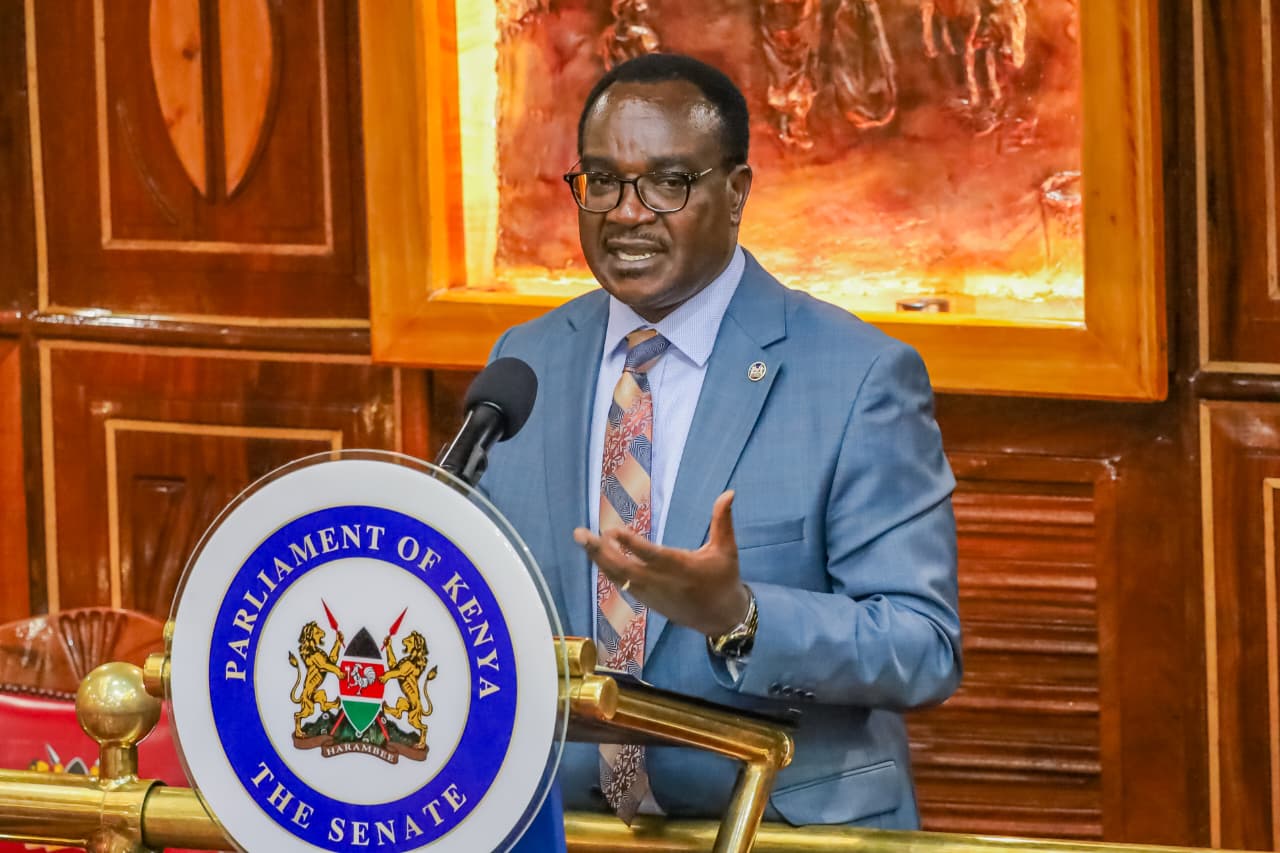A standoff over billions of shillings owed to lecturers has paralysed learning in public universities for the third week, with no resolution in sight as the Ministry of Education and university dons disagree sharply over the amount still outstanding under their 2017–2021 collective bargaining agreement (CBA).
Appearing before the Senate, Education Cabinet Secretary Julius Ogamba maintained that the government only owes lecturers Sh624 million, disputing the lecturers’ claim that the figure stands at Sh7.9 billion.
“Under that CBA, they argue that there was an amount of Sh7.9 billion that was to be paid. However, the SRC informs us that Sh7.2 billion has already been settled, leaving a balance of Sh624 million,” Ogamba told senators on Wednesday
The conflicting figures have widened the stalemate, prolonging the strike and disrupting academic programmes across public universities. Thousands of students have been affected since the strike began three weeks ago, with some threatening to join the protest if the matter remains unresolved.
The Universities Academic Staff Union (Uasu) issued a seven-day strike notice shortly after the new academic year began, accusing the government of failing to honour its commitments under the CBA.
The lecturers are demanding full payment of the Sh7.9 billion balance from the 2017–2021 agreement and the start of negotiations for the 2025–2029 CBA.
Last week, Uasu secretary general Constantine Wesonga urged the government to comply with a court judgement and an advisory issued by the Attorney General on April 10, 2025, directing the Education ministry to settle the Sh7.9 billion.
Ogamba did not address the alleged court order and advisory, instead stating that there is a court order stopping the strike. He insisted the ministry has cleared more than 90 per cent of the dues.
“There is a question of how much is outstanding; what the unions are asking for, and what the government is saying it owes them,” he said.
The CS explained that the ministry has already disbursed Sh2.73 billion and will release an equal amount in June next year to fully implement the 2021–2025 CBA.
“As far as the CBA of 2021-25 is concerned, the issues have been addressed,” Ogamba said.
He added that a conciliator has been appointed to help reconcile the figures and break the deadlock. The Ministry of Labour and Social Protection appointed Richard Litaba to lead the process, with both sides scheduled to meet at the Employment and Labour Relations Court on Monday for updates on the talks.
“The discussion and negotiations have been going on to see the real point of what the issue is. But this country being what it is, the facts are crowded in the noise,” Ogamba noted.
“The real issue is the 2017-21 CBA, in which verification of how much money is due for us to be able to move to the next stage of how it’s going to be settled is what is pending.”
Senators challenged the ministry to address the lecturers’ grievances and infrastructure concerns in universities, pointing to widespread delays in projects and growing student unrest.
Nandi Senator Samson Cherargei asked about the state of infrastructure and the ongoing strike, while Nairobi Senator Edwin Sifuna questioned why the government was ignoring legally binding agreements.
“When will this government start respecting the proceeds of legal processes such as CBAs? Can the CS tell us why lecturers are on the streets for three weeks?” Sifuna asked.
“And the students have told us that if the matter is not resolved today, they will join the strike. What is going on?”
Ogamba revealed that at least Sh9 billion is required to complete stalled infrastructure projects in universities. “We have serious deficiencies in infrastructure funding, and many lecture halls and other projects remain incomplete,” he said.
Meanwhile, senators also raised concerns about the management of Junior Secondary Schools and teacher deployment, with Murang’a Senator Joe Nyutu questioning why some JSS teachers were being forced to teach subjects outside their training.
“Why are JSS teachers being assigned subjects outside their areas of specialisation, considering the impact this has on instructional quality, content accuracy, and learners’ preparedness for senior secondary pathways?” Nyutu asked.
In response, Ogamba said the Teachers Service Commission has clear structures to guide deployment. He stated that teachers’ job descriptions are well defined and that staffing levels in primary schools are currently optimal.
“Due to the reduction in the number of classes in primary schools, the staffing position in the primary section is optimal, and there are no cases of teachers in junior school being compelled to teach in the primary section,” he said.
The unresolved pay dispute and the infrastructure challenges have set the stage for further confrontations between the ministry and lecturers, as public universities continue to grapple with disruptions caused by the prolonged strike.
